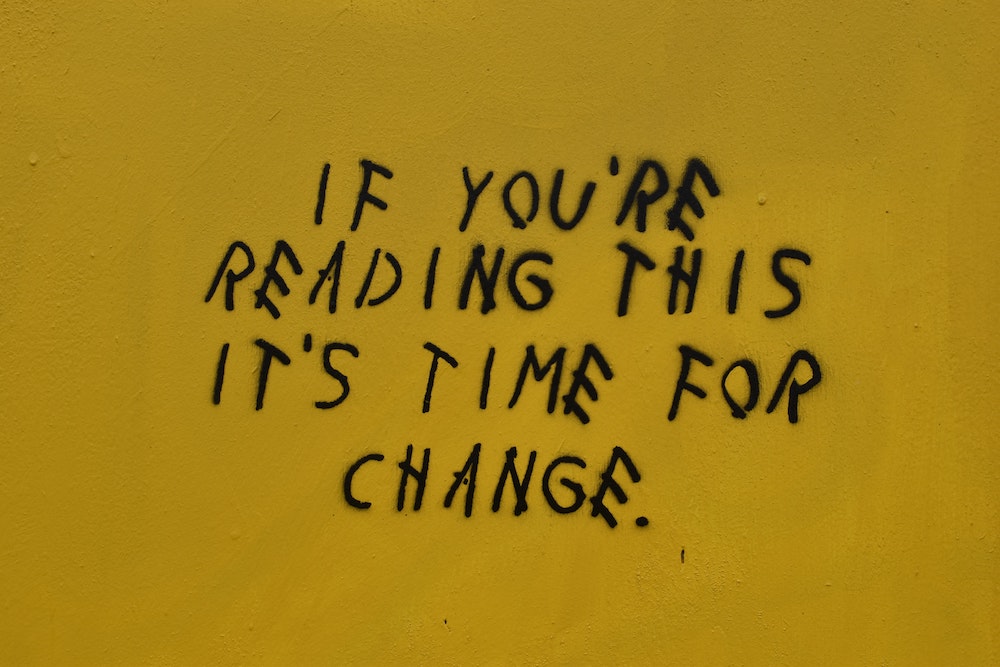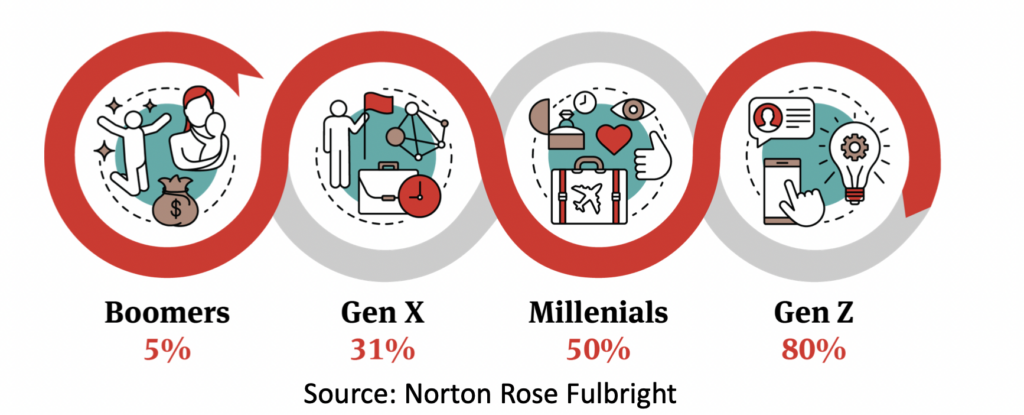
Why career coaching is so essential in times of new work
About the great resignation and the growing need for realignment
As a coach, I have seen a visible increase in the need to explore different career options. While some clients are finally planning to tackle going back to work after a long break, other clients are seeking a shift in their current career feeling their skills and values are not matched with their current profession. During the pandemic the buzzword „The great resignation“ came up, illustrating the global need for creating a new work-life balance. In this article, I will highlight some interesting global facts around the topic of the great resignation and explore why coaching is such an essential tool for employees (and potential employees) to gain realignment with their careers.
Some background on the term "The great resignation"
The term „The great resignation“ goes back to an idea proposed by professor Anthony Klotz of Texas A&M University that predicts a large number of people leaving their jobs after the COVID pandemic ends and life returns to “normal”. This prediction is based on the assumption that the uncertainties and disruptions of the pandemic have prompted many people to re-evaluate their priorities, with some taking the decisive step of quitting their jobs in pursuit of a better quality of life. According to Klotz and his team, they proposed that pandemic-related epiphanies about family time, remote work, commuting, passion projects, life, and death have changed the way employees think about work. In conjunction with pent-up resignations, these epiphanies have led to the great resignation.
While before financial and social stability were essential reasons for not exploring different options, we are now living in a very volatile and unpredictable world and nevertheless, people are leaving the safe harbor to seek realignment.
The great resignation around the globe
Within the HR industry, there was a lot of discussion going on about whether this phenomenon of a great resignation is a marketing buzzword or a real phenomenon. Many articles refer to different labor statistics showing that there is a significant effect on dropout numbers around the globe. However, in most cases, one can also see a balancing effect happening shortly after. This leads to the discussion that the great resignation is not about leaving the workplace for good but finding a better fit. The effect is not as big as one might think from the discussion. It is not that 50% of people desperately want to leave their job right away but there is a stabilizing effect taking place. What is that telling us? The likelihood of changing jobs is higher and there is higher insecurity for companies and a need for retraining staff.
Here are some statistical insights on the phenomenon of the great resignation around the globe:
- In September 2021, a record of 4.4 million resigned from their jobs in the United States.
- In China, it was manifested in the social movement known as “lying flat” or tang ping. This is where the younger generation rallies against societal pressures, and opt out of the struggle for workplace success, and reject the promise of consumer fulfillment
- A 2021 talent trend report by Michael Page revealed that more than 56% of Singapore workers see themselves searching for jobs that are not just jobs but go deeper in terms of growth and personal development.
These numbers are examples of how significantly the question of work-life balance is discussed around the globe. People are questioning whether their current professional situation is still a good fit. While before financial and social stability were essential reasons for not exploring different options, we are now living in a very volatile and unpredictable world and nevertheless, people are leaving the safe harbor to seek realignment. This might seem counterintuitive but describes a worldwide change in how we evaluate work and career planning.

Why do people leave or quit their work?
The reasons why people decide to leave their current job (besides the BANI world we are living in) are manifold but portray a mix of goals around career progression (better salary, different responsibility) and the idea of protecting the idea of who you are as a person (reacting to burnout, seeking a better balance, feeling reconnected). The most common reasons mentioned in several reports are:
- The urge to seek more growth opportunities
- Lots of uncertainty or unfulfillment at current workplace
- High workloads constant feeling of burnout
- Want to have better mental health, mental well-being
- Feel disconnected emotionally, mentally, and physically (also influenced by working from home)
- Want to have more flexibility
- Want to feel more purpose and meaning
- Low pay or lack of benefits
- Want to head back to their hometown – especially being triggered by separations from family during the pandemic
LinkedIn CEO Ryan Roslansky refers to this as a great reshuffle, noting that job change increases by generation show that younger employees led the way out as can be seen from this interesting graphic:

The role of coaching in times of great resignation
One can refer to the great resignation as the great realignment. This is where employees seek to find more meaning and purpose in their work and be in organizations that are a better match for their needs and wants. A common thought of my clients is:
„There could be something more and I want to explore“
It appears that we have more control in our own hands to make a decision. More freedom from societal pressure. What we need now is to make use of this momentum and create action through a more agile mindset. The great resignation is not about leaving the workplace but shifting to something that fits better triggered by the increasing exploration of personal priorities in life. Coaching is a great way to explore different options and to identify limiting beliefs that are standing in the way of creating actual change. If you need support exploring and creating a shift I am happy to partner with you in my role as a certified career coach. Let’s hop on an informal audio or video call to discuss your current situation and how coaching can help you. You can book a complimentary discovery call in my calendar here. You can also send a message to info@sharethelove.blog and we will take it from there. I am looking forward to supporting you in your journey and helping you facilitate real alignment!
I hope you found this blog post helpful for your current situation. Let me know if I can be of any help! I offer the opportunity for free 1:1 discovery calls to discuss your situation and I also offer free monthly global coffee dates where women from all around the world meet to discuss their global lifestyle decisions. You can safe your spot here.

Do you know anyone who might find this helpful? Share the Love by sharing this article
Ebook for the accompanying partner
Quitting your job and joining your partner abroad does not need to end your professional career. Learn what options you have and how to define what you really want during your time abroad. Make it to your own personal journey and get the most out of it!










